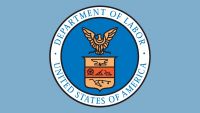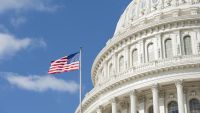OSHA Reform: Does It Hurt or Help Mason Contractors?
The ways in which the Occupational Safety and Health Administration (OSHA) of the Department of Labor enforces its rules and adjudicates its enforcement actions needs improvements to ensure the system provides adequate fairness to businesses, while also assuring worker safety is maintained. There have been numerous attempts to pass legislation designed to improve workplace safety, enhance business competitiveness, and foster more job creation to spur the economy. As recently as 2006, Sen. Mike Enzi (R-Wyo.) and the late Rep. Charlie Norwood (R-Ga.) worked to pass legislation, which was supported by the masonry industry as well as many in the business community. The masonry industry advocated on behalf of these measures, which would have ensured that OSHA enforcement efforts were in fact fair for small businesses that make good faith efforts to comply with all health and safety laws. These reform efforts were meant to improve worker safety by making it easier for employers to work voluntarily and proactively with OSHA to ensure safe and secure workplaces. Unfortunately, past efforts were met with some resistance and Congress was unable to address previous legislation in a timely manner.
Since the climate in Washington, D.C., has changed dramatically with the Democrats regaining power, we may finally see OSHA reform legislation move through Congress. The fate of such legislation will depend solely on support of the employer community, Republicans and more importantly, the president.
Recently, Sen. Edward Kennedy (D-Mass.), chairman of the Senate Health Education Labor and Pensions Committee (HELP), along with Rep. George Miller (D-Calif.), chairman of the House Education and Labor Committee, introduced legislation meant to reform and overhaul OSHA. In conjunction with the introduction of this legislation, both the House and Senate committees held hearings in May to evaluate OSHA and its practices.
Witnesses who testified at the hearing held by the Senate HELP Workforce Protections subcommittee included Peg Seminario, director of health and safety at AFL-CIO; David Michaels, research professor and associate chairman of the Department of Environmental and Occupational Health at George Washington University; and a health care worker from Washington State. The Republican witness for the hearing was Thomas F. Cecich, on behalf of the American Society of Safety Engineers.
Witnesses for the House Education and Labor's Workforce Protections subcommittee included OSHA Assistant Secretary Edwin Foulke; Eric Peoples, former employee of Glister-Mary Lee Popcorn Factory and a victim of Bronchiolitis Obliterans ("popcorn worker's lung"); Scott Schneider, director of Occupational Safety and Health Laborers' Health and Safety Fund of North America; Baruch Fellner, an attorney with Gibson, Dunn and Crutcher; and Frank Mirer, professor of environmental and occupational health sciences at the Hunter School of Urban Public Health in New York.
Kennedy has introduced and attempted to pass OSHA reform legislation numerous times, and his current legislation is expected to be similar to the broad OSHA reform bill he has sponsored in previous Congresses.
Kennedy's bill, which is co-sponsored by Sen. Patty Murray (D-Wash.), would extend OSHA protections to federal workers and others not currently covered, increase penalties, provide whistleblower protections, increase the public's right to know about safety violations, and clarify that employers are required to provide safety equipment to their workers.
A spokesperson for Miller indicated his bill would be similar to Kennedy's. However, a key source told Inside OSHA that Miller's bill might contain provisions beyond those in Kennedy's bill.
Kennedy and Murray have been soliciting support for their legislation as well as seeking support from other Senators to sign on as original cosponsors of the bill. According to Kennedy and Murray's "Dear Colleague" letter, "There are many things we can and must do to provide greater protections for the nation's workers. More workers deserve to be covered. Stronger enforcement will help eliminate hazardous conditions before, not after, workers are injured or killed. Our federal agencies should develop better safety standards to address not only existing risks at work, but also the likelihood of future hazards caused by newly-developed chemicals and innovative technologies."
The bill summary states that the legislation would apply to more than 8.5 million workers currently not covered by OSHA's protections.
Furthermore, the legislation would increase penalties for employers who commit willful OSHA violations that result in a worker's death or serious injury, making felony charges available for such employers. Under current law, employers may only be charged with a misdemeanor when a willful OSHA violation leads to a worker's death. The legislation also would update OSHA civil penalties, as well, with a minimum fine of $50,000 if a willful OSHA violation leads to a worker's death.
In addition, the legislation would update whistleblower protections by adopting administrative procedures from laws such as the Surface Transportation Act that have been successful. According to a summary of the bill, OSHA's whistleblower protections have remained unchanged since 1970.
Kennedy's bill also would require the Department of Labor to investigate all deaths or serious injuries, give the right to workers and their families to meet with investigators, and require employers to inform employees about their rights.
Finally, the bill would clarify that employers must provide workers with safety equipment, including personal protective equipment. Miller's committee in the House is expected to take a closer look at some of the industry sectors hardest hit by ergonomics injuries, such as nursing and meatpacking.
According to a March 19th issue of Inside OSHA, the Senate Appropriations labor subcommittee also plans to probe OSHA's slow pace in issuing ergonomics guidelines, which the agency promised to draft when its ergonomics standard was repealed by Congress many years ago as part of an incremental focus on ergonomics.
Both Rep. Miller and Sen. Kennedy are passionate about the issue of OSHA reform; therefore, it is certain that Congress will deal with this issue at some point in the coming months.
- Covers more workers.
- Increases penalties for those who break the law.
- Protects workers who blow the whistle on unsafe conditions in the workplace.
- Enhances the public's right to know about safety violations.
- Clarifies an employer's duty to provide safety equipment.
About the Author
Jessica Johnson Bennett was the Director of Government Affairs for MCAA. She has an extensive background in public affairs and government relations. Her expertise in strategic planning, PAC management and operations help on key policy issues.


















